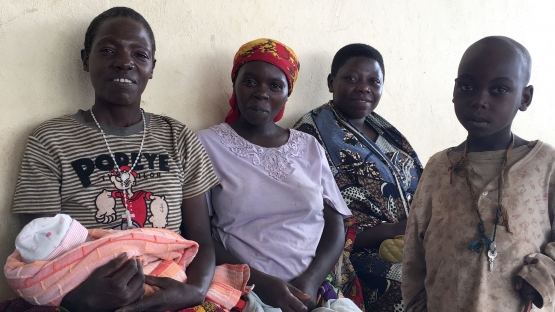The Government of Burundi seeks to strengthen its national cancer control programme, while taking into account recommendations made during a recent joint assessment mission by the International Atomic Energy Agency (IAEA), the World Health Organisation (WHO) and the International Agency for Research on Cancer (IARC).
“Our priorities are to establish a national, multi-sectoral committee to review our strategic cancer control plan and to mobilise the human and financial resources necessary to provide adequate cancer care,” said Dr Innocent Nkurunziza, the National Programme Director for the Integrated Fight Against Non-Communicable Diseases and President of the Thematic Group on Cancer at the Ministry of Public Health.
Burundi is one of Africa’s smallest and most densely populated countries, and cancer increasingly affects the population. According to IARC, each year, over 7,000 Burundians develop the disease and almost 6,000 die from it. Both figures are projected to rise by around 85% by 2030. At the same time, public awareness about cancer remains low and the majority of patients seek medical attention when their illness is already too advanced to be cured.
To better understand the country’s cancer situation, the Government of Burundi requested an assessment of its national capacities to control cancer through an “imPACT Review” conducted by the IAEA in cooperation with WHO and IARC. A team of international experts nominated by the participating Agencies visited public and private health care facilities, medical schools and non-governmental organisations (NGO) working on cancer in the capital Bujumbura and the cities of Kayanza and Mpanda. The experts appraised the status of cancer prevention, early diagnosis, treatment and palliative care, as well as of the national cancer planning and cancer registration system. In addition, the levels of safety and security of radiation medicine for health care workers and patients were evaluated.
Out of the more frequent cancers in Burundi, cervical and oesophageal cancers and Kaposi Sarcoma are highly preventable, while effective control of breast cancer and non-Hodgkin lymphoma predominantly depends on the early detection and appropriate treatment of the relevant tumors. In Burundi, the limited access to effective prevention measures as well as early detection and treatment services significantly reduces patients’ chances of survival.
While the Government is gearing up to address the growing needs, several NGOs have been undertaking prevention or screening activities for years. For example, the Association Burundaise pour le Bien-être Familial (ABUBEF) runs 7 clinics nationwide offering breast and cervical cancer screening, and referring women screened positive to gynaecologists for confirmation of the diagnosis and treatment, if needed. “We have been running a cervical cancer screening programme here since 2014. During a recent campaign, we screened 189 women in one week and trained 17 medical doctors in screening and treatment of pre-cancer lesions with cryotherapy,” said Donavine Uwimana, ABUBEF’s Executive Director.



